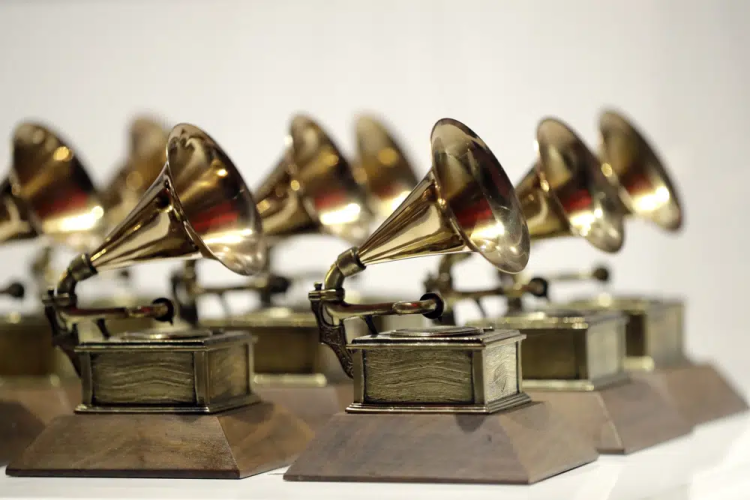LOS ANGELES (AP) — The Grammy Awards are undergoing several changes, including a new regulation stating that only “human creators” can receive the music industry’s highest accolade. This decision is aimed at addressing the growing use of artificial intelligence (AI) in popular music.
According to the recently unveiled “Artificial Intelligence (AI) Protocols,” the Recording Academy clarified that a work lacking human authorship will not be eligible for any category. The rule was established during the academy’s board of trustees meeting last month. It was determined that compositions featuring AI elements can be considered, as long as a human creator has made a significant and meaningful contribution to the music and/or lyrics.
The revised requirements state that the human authorship component of the submitted work must carry significance. These changes come shortly after Paul McCartney’s announcement that an upcoming “last Beatles record” was created using AI technology that extracted John Lennon’s voice from an old demo. McCartney expressed a mix of apprehension and excitement toward AI, describing it as “kind of scary but exciting.” He added that the outcome of AI implementation remains to be seen.
In addition to the AI rule, the Grammy Awards have implemented swift changes in various categories. The album of the year category now requires a music creator to have contributed at least 20% to the work. This criterion encompasses all credited artists, featured artists, songwriters, producers, engineers, mixers, and mastering engineers. This is a departure from the 2021 decision, which allowed anyone involved in the album’s production to be nominated.
Furthermore, the number of nominees in the “Big Four” categories, which include best new artist, album of the year, song of the year, and record of the year, has been reduced from 10 to eight.
Previously, the “best music film” category required 50% of the documentary footage to be performance-based. However, the Recording Academy has now eliminated this requirement, allowing for greater flexibility in determining the nominees for this category.
The recent changes in Grammy Awards categories reflect the evolving nature of the music documentary format. The eligibility criteria now acknowledge that music documentaries often consist of a blend of verité and archival footage, such as Apple TV’s “Billie Eilish: The World’s a Little Blurry.” However, biopics and dramatic feature films remain ineligible for consideration.
Additionally, the revised rules allow for the inclusion of music-focused individual music videos that collectively form a visual album. This trend, popularized by Beyoncé’s “Lemonade” film in 2016 and explored across various genres, is exemplified in Halsey’s 2021 work, “If I Can’t Have Love, I Want Power.”
The Recording Academy has also made changes to specific award categories. The “best improvised jazz solo” award has been renamed as “best jazz performance.” Furthermore, the category of “best regional Mexican music album (including Tejano)” is now called “best música Mexicana album (including Tejano).” To qualify in the latter category, a minimum of 50% of the lyrics must be sung in Spanish, or the majority of the musical content must represent a traditional Mexican style, such as banda, norteño, corridos, gruperos, mariachi, rancheros, sierreño, jarocho, huasteco, and huapango.
In addition to the aforementioned changes, the Grammy Awards have introduced three new categories. These additions were announced recently, on Tuesday. The newly included categories are as follows:
- Best Pop Dance Recording: This category recognizes outstanding recordings in the genre of pop dance music. It celebrates the fusion of pop music with electronic dance elements.
- Best African Music Performance: This category highlights exceptional performances in African music. It acknowledges the diverse range of musical styles and traditions across the African continent.
- Best Alternative Jazz Album: This category honors exceptional albums that push the boundaries of jazz and explore alternative approaches to the genre. It recognizes innovative and non-traditional jazz compositions and performances.
These new categories demonstrate the Grammy Awards’ commitment to recognizing and celebrating the evolving landscape of music, embracing a wider range of genres and cultural influences.









